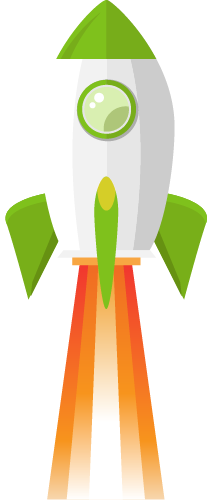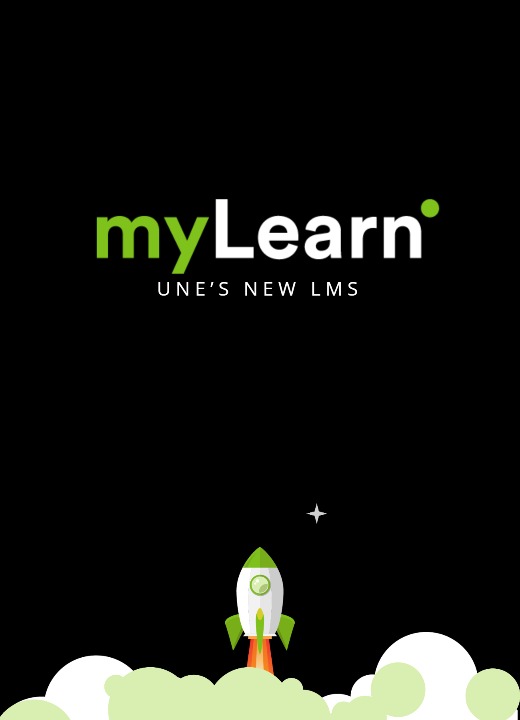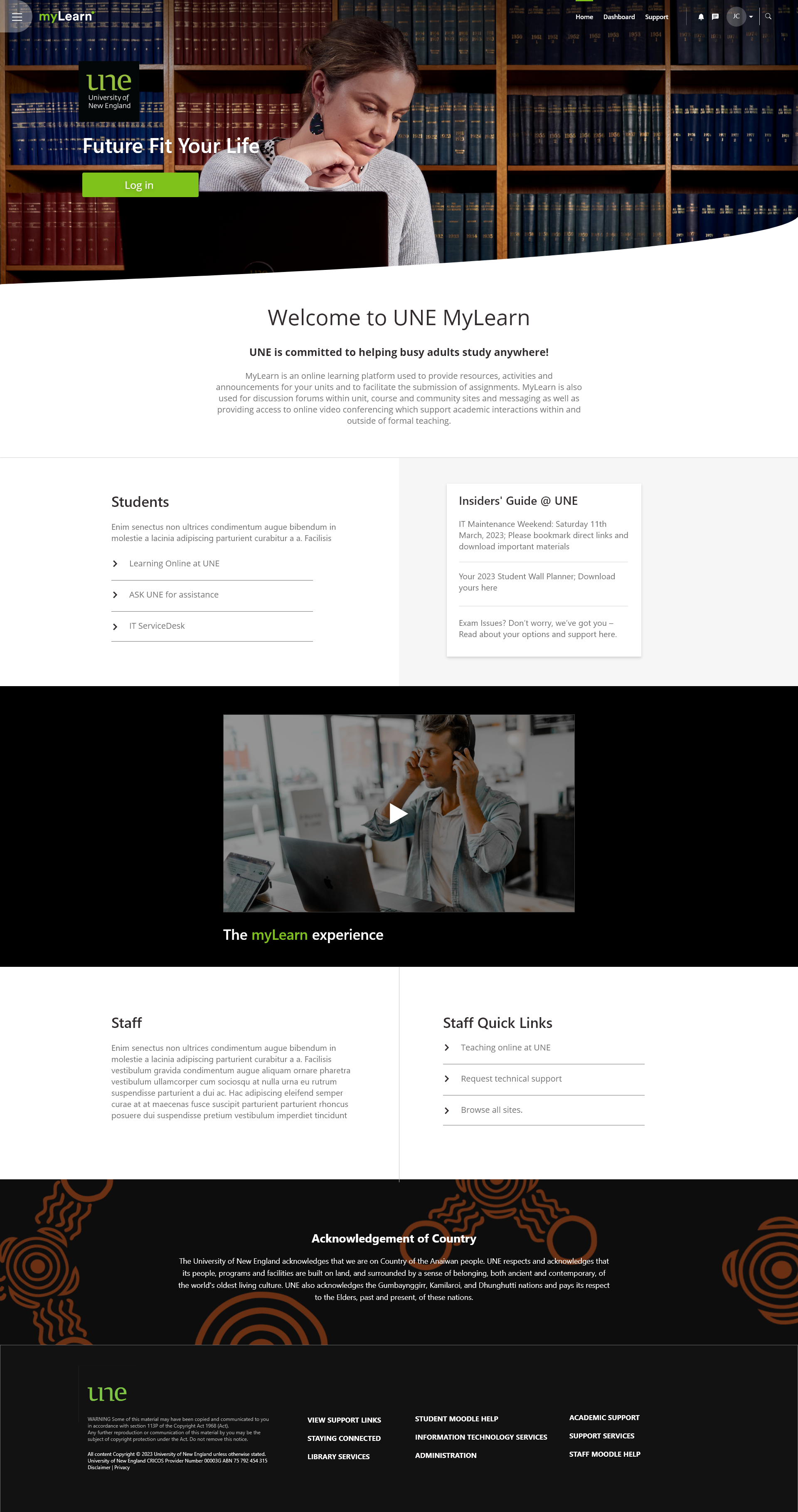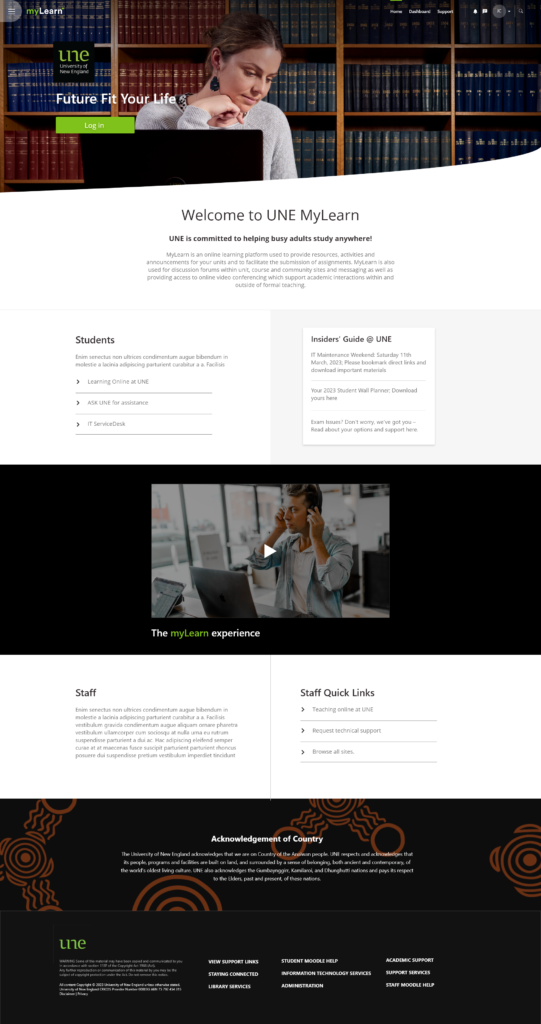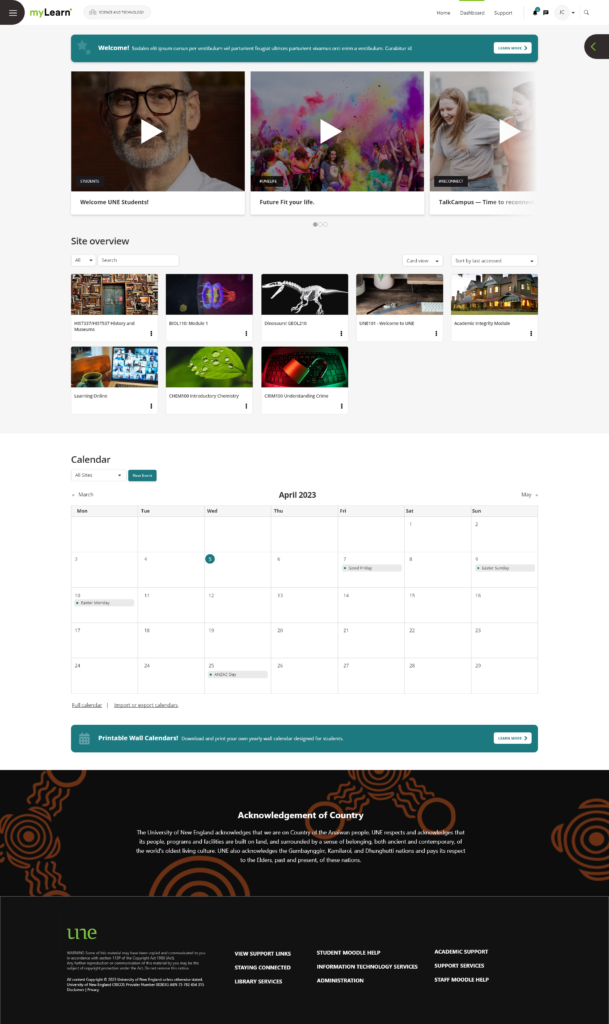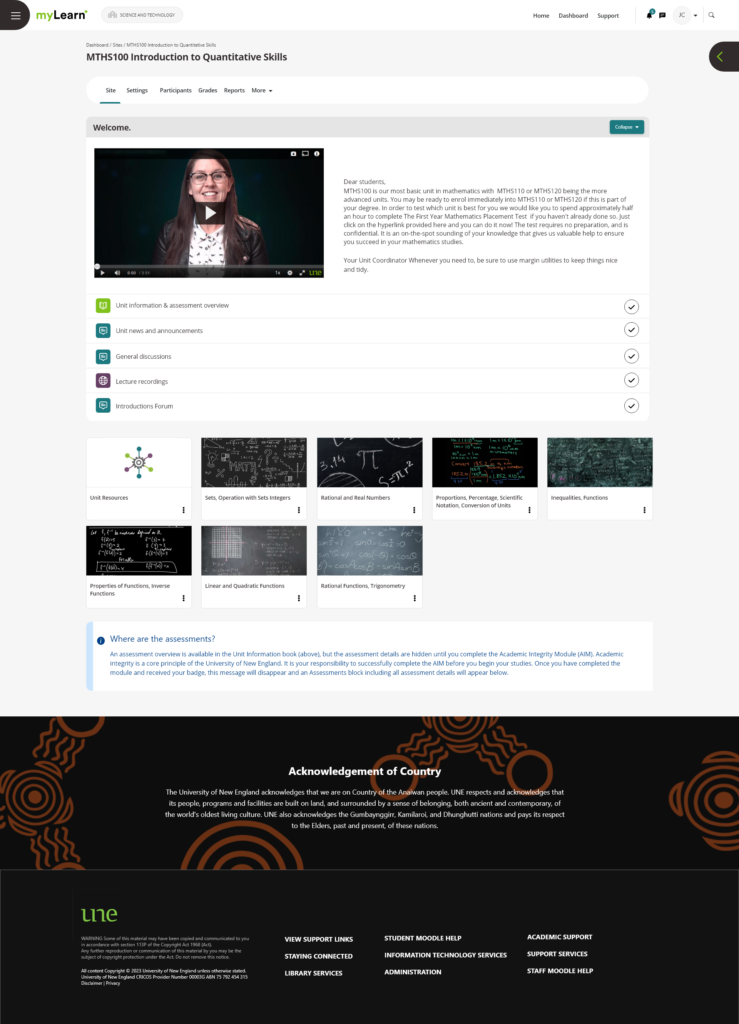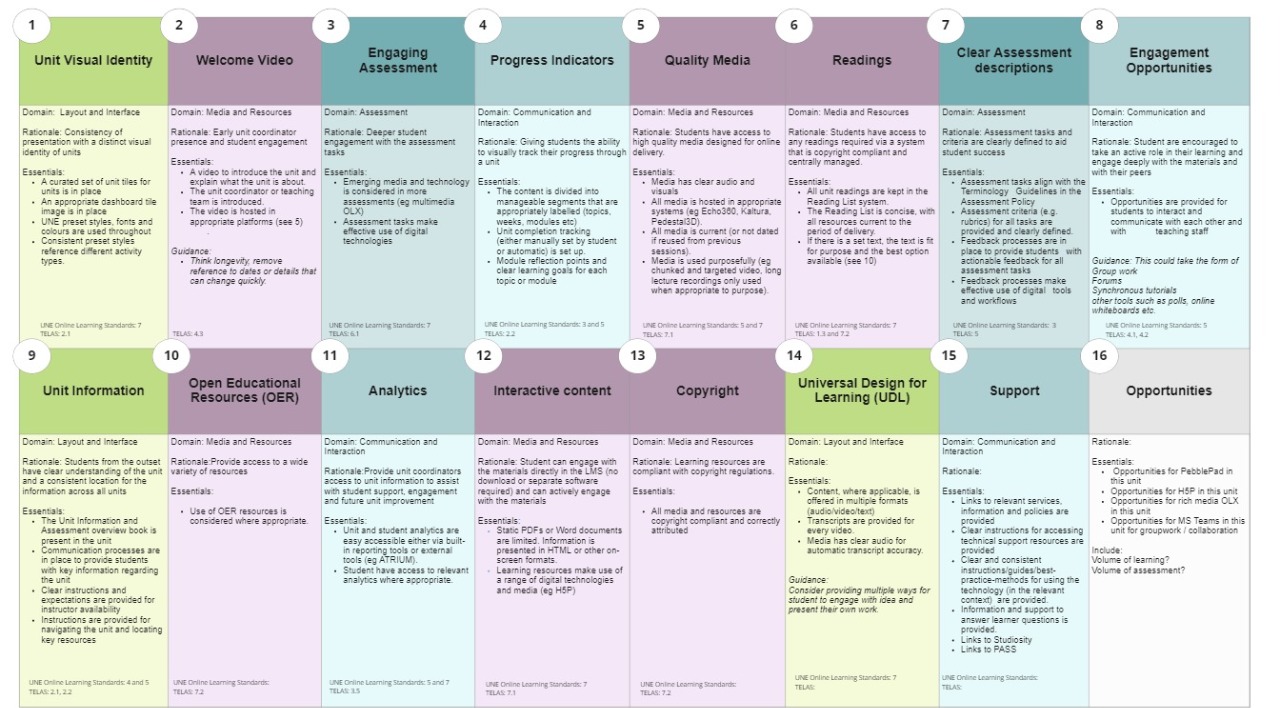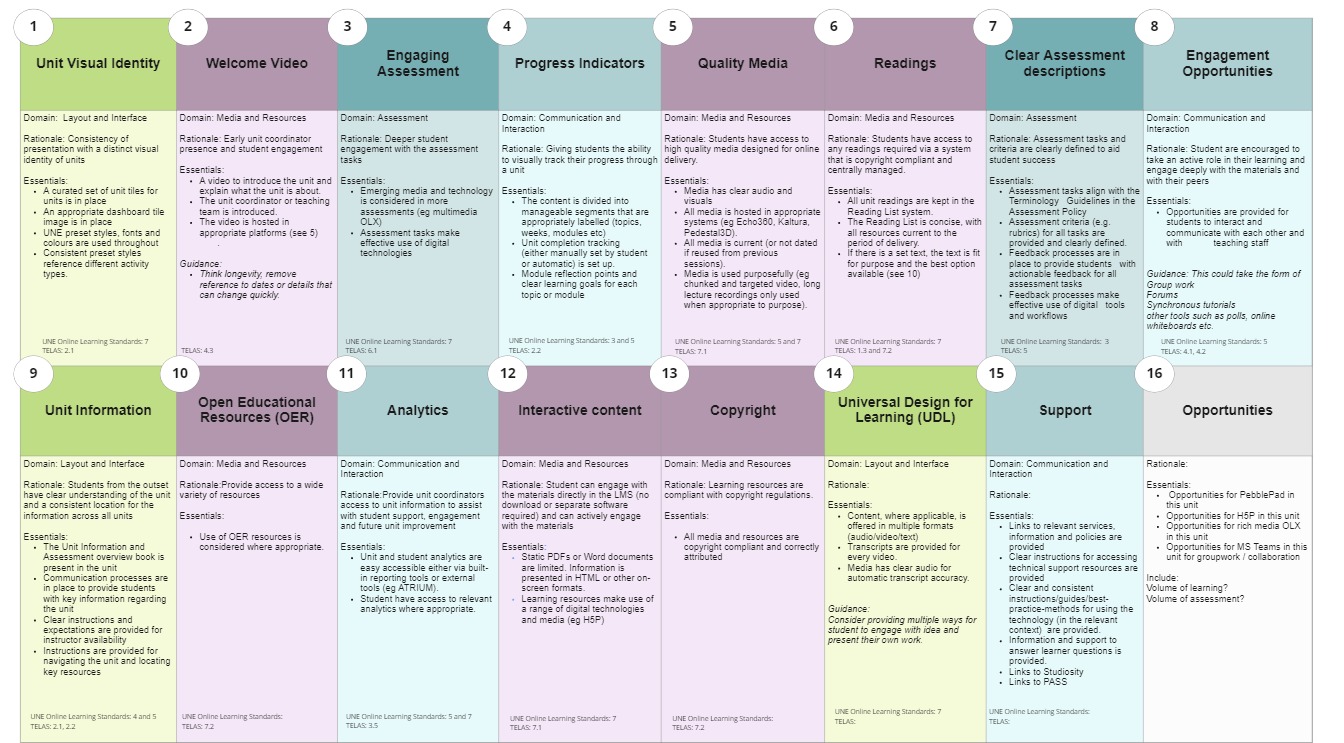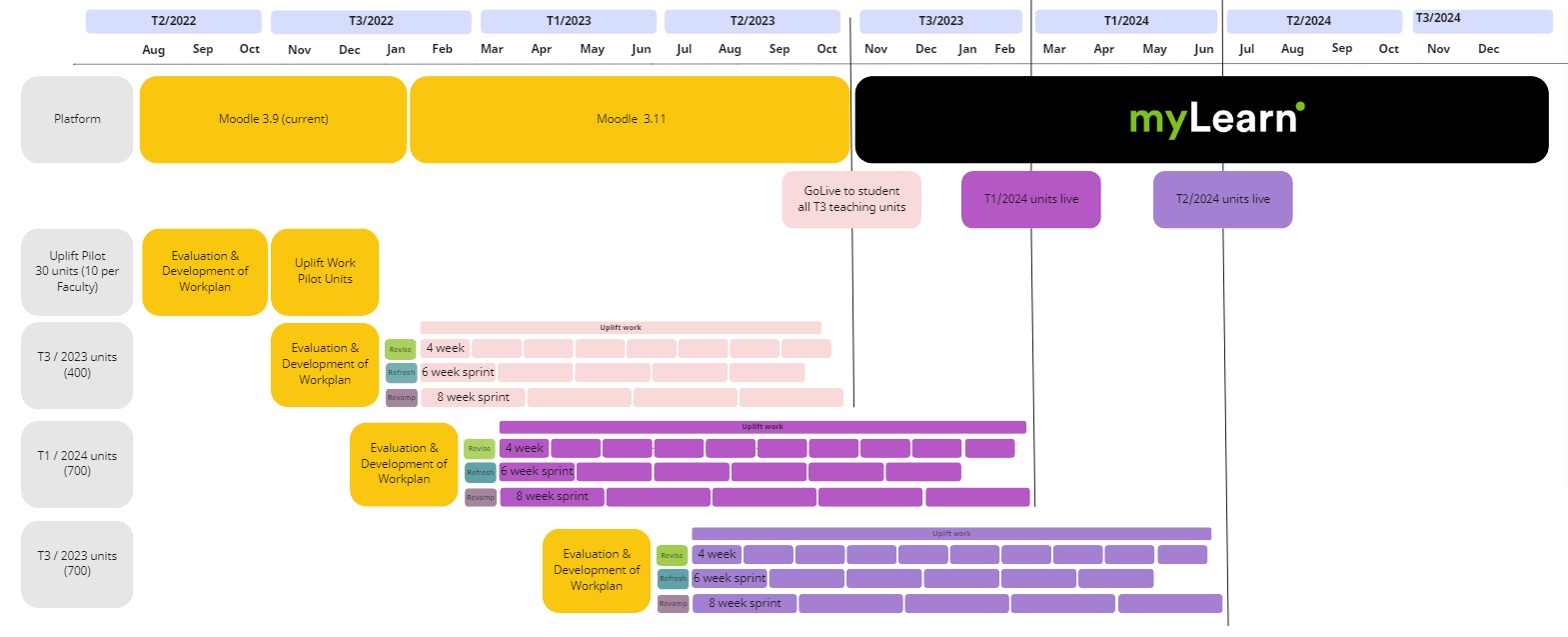Announcing myLearn’s core platform
UNE will partner with OpenLMS to implement Moodle 4.1 as the foundation for myLearn – a fundamental architectural shift with a fresh new user interface and significantly improved user experience.
Here’s a sneak peek of the fresh new interface as an early look into what you could expect to see in myLearn:
Concept Art
UNE’s next-generation learning ecosystem:
more than an LMS
T3/2023 will see the introduction of myLearn as the next generation of UNE’s online learning experience. Rather than thinking of our online learning environment as a single system, myLearn signals a shift to an ecosystem approach that brings together a suite of tools and processes that integrate seamlessly and serve a broad range of approaches. Read on to learn about each of the ecosystem components.
Why ‘myLearn’?
It makes sense for UNE’s core learning space to be named something that’s meaningful to us, rather than a proprietary brand name. myLearn was the name chosen through consultation with students and staff as the preferred name to adopt for our next-generation ecosystem.
Check back regularly as updates and resources are added here – user guides, fact sheets and more to come
Learning Management System (LMS)
The LMS (Learning Management System) is the core of the myLearn ecosystem. It’s a software platform that supports and organises access to digital learning and teaching. It is used to author, manage, and deliver learning materials and courses. It brings together content – including content from other systems such as videos or library resources – in a structured way and presents them meaningfully to students and staff, and facilitates student and staff collaboration across the period of delivery. The LMS is also central to the management, delivery and grading of assessments in the form of quizzes, assignment submissions or other assessable tasks.
myLearn has Moodle 4.1 as its core LMS and with that comes a new look as well as some changes to the navigation and the layout:
Check the blog post on the new look and feel (“theme”) and about the changes to the layout of the units on our Digital Education blog for more information.
Content Creation
Design and delivery of digitally-enabled and enhanced content
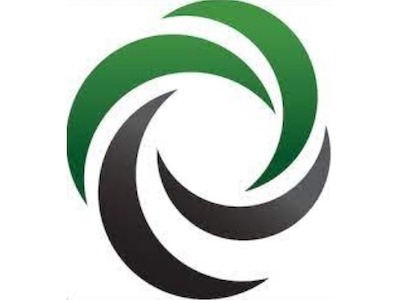
Reading List
Curation and management of accessible and compliant course materials
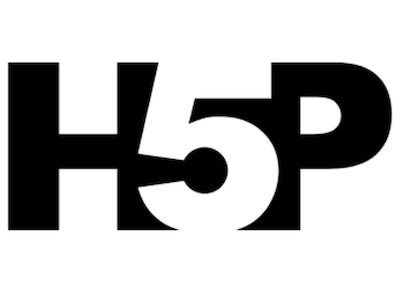
H5P
Interactive content development toolkit
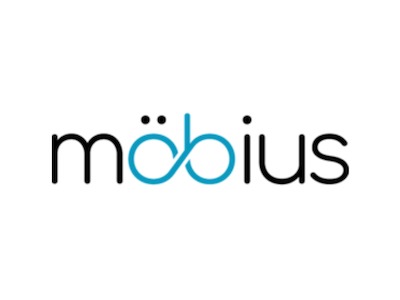
Möbius
Toolkit for content and assessment in STEM disciplinesMedia platforms
Effective management and delivery of multimedia
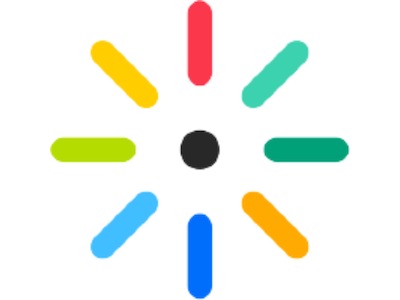
Kaltura
Delivers the myMedia platform for staff and student use
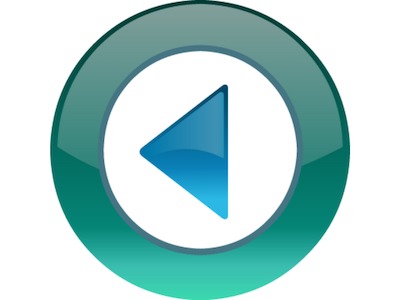
Echo360
Manages lecture capture and other video recordings
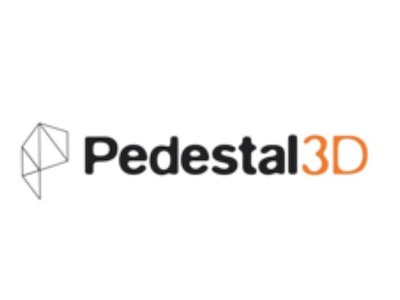
Pedestal 3D
Manages 3D scanned artefacts, with a range of interactive tools
Communication and Collaboration
Enabling digital connection between staff and students

Zoom
Synchronous collaboration and virtual classroom
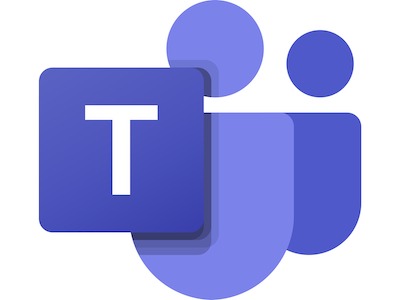
MS Teams
Suite of communication tools - currently being piloted to evaluate student-facing possibilities
Assessment
High-quality, robust and authentic assessment experiences
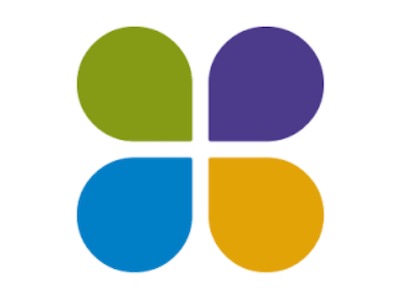
PebblePad
ePortfolio platform for assessment and professional practice

ProctorU
UNE's OLX partner - invigilation of online examinations
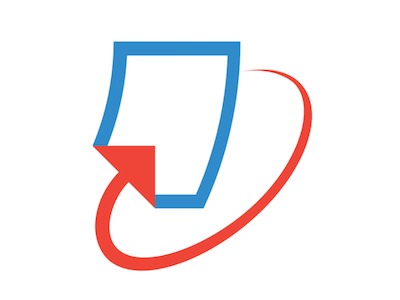
TurnItIn
Online marking tools and similarity checking
People and Processes
Ecosystems aren’t just collections of technologies – people and processes are also critical components. Here are some of the key initiatives Education Futures is undertaking to enable effective and sustainable practices:

